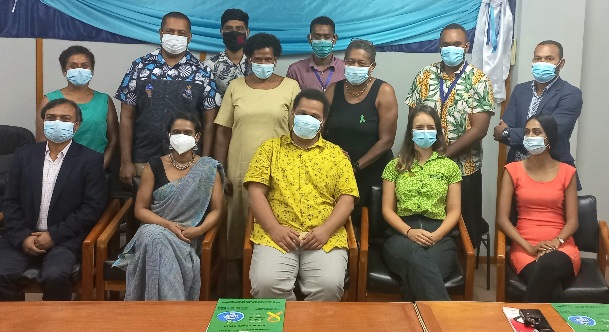Fiji’s Ministry of Health head of wellness unit Dr Devina Nand reminded local journalists of the responsibility that comes with the power they have to influence minds when reporting on people who intentionally take their own lives, particularly amidst COVID-19.
Reps from almost all media organisations convened at the Ministry of Health headquarters in Suva today going over World Health Organisation media guidelines on reporting on suicides presented by WHO mental health technical officer Dr Jen Hall with support from the Fiji National University and the Fijian Media Association, and facilitated by MOH’s head of wellness unit Dr Devina Nand and local psychotherapist and counsellor Dr Selina Kuruleca.
The discussion was held after concerns were raised over the manner the death of an 18-year-old boy from Nausori was reported including showing details of how he died.
Dr Hall shared how suicide reporting, if care is not taken, including the language that is used may prove to be a trigger for people who are at high risk of ‘copycat’ behaviour including young people, people living with mental illness, people who attempted suicide in the past and people bereaved by suicide including families of the deceased.
Instead of sensationalising suicides, Dr Kuruleca urged journalists to put a ‘positive spin’ to the incident by way of informing readers that their is more to life, and provide avenues and contacts of people who they could turn to, to help them deal with difficulties that they may be going through.
Dr Kuruleca said they noted an increase in the number of people living with a mental health condition this year compared to the same time the previous year exacerbated by the COVID-19 pandemic, with more males than women diagnosed, consistent with global trend.
This she says underlines the need for media organisations to responsibly report on incidents of suicides.
- WARNING SIGNS OF SUICIDE:
- Talking about wanting to die
- Looking for ways to kill oneself
- Talking about feeling hopeless or having no purpose
- Talking about feeling trapped of unbearable pain
- Talking about being a burden to others
- Increasing the use of alcohol or drugs
- Acting anxious, agitated or reckless
- Sleeping too little or too much
- Withdrawing or feeling isolated
- Showing rage or talking about seeking revenge
- Displaying extreme mood swings
- WHAT TO DO
- Do not leave the person alone
- Safety firs: remove any firearms, alcohol, drugs, sharp objects, or any other means for self-harm
- Call a crisis hotline or talk to a person in an emergency room, or seek help from a medical or mental health professional









